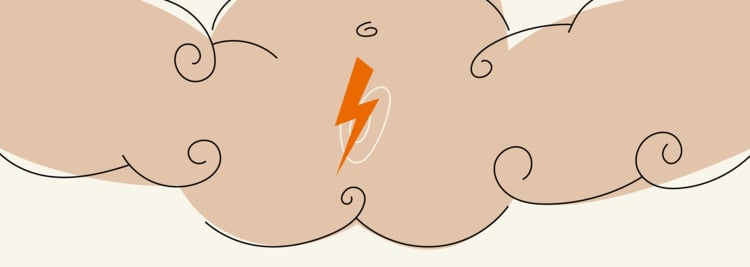Vulvodynia is chronic vulvar pain with no known cause. In this article, Flo explains the medical data and details the symptoms, treatments, and ways to relieve vulvar pain.
-
Tracking cycle
-
Getting pregnant
-
Pregnancy
-
Help Center
-
Flo for Partners
-
Anonymous Mode
-
Flo app reviews
-
Flo Premium New
-
Secret Chats New
-
Symptom Checker New
-
Your cycle
-
Health 360°
-
Getting pregnant
-
Pregnancy
-
Being a mom
-
LGBTQ+
-
Quizzes
-
Ovulation calculator
-
hCG calculator
-
Pregnancy test calculator
-
Menstrual cycle calculator
-
Period calculator
-
Implantation calculator
-
Pregnancy weeks to months calculator
-
Pregnancy due date calculator
-
IVF and FET due date calculator
-
Due date calculator by ultrasound
-
Medical Affairs
-
Science & Research
-
Pass It On Project New
-
Privacy Portal
-
Press Center
-
Flo Accuracy
-
Careers
-
Contact Us
How to Deal with Vulvodynia Symptoms: Chronic Vulvar Pain Causes and Treatment


Every piece of content at Flo Health adheres to the highest editorial standards for language, style, and medical accuracy. To learn what we do to deliver the best health and lifestyle insights to you, check out our content review principles.
What is vulvodynia?
Persistent vulvar pain can be frustrating and difficult to diagnose. Treating such pain is also difficult, and it can take a while to resolve, even with the right therapy. The cause of vulvar pain can be a specific disorder such as an infection, or it can be idiopathic (meaning there’s no known cause). Idiopathic pain in the vulva is referred to as vulvodynia.
According to the International Society for the Study of Vulvovaginal Disease, people with vulvodynia experience discomfort in the vulva, most often described as a burning pain. It occurs without any visible findings or a particular, clinically recognizable neurological disorder. To diagnose vulvodynia, the doctor will try to rule out more common causes of vulvar pain, including:
- Infection (e.g., herpes, human papillomavirus, and candidiasis)
- Inflammation (e.g., immunobullous disorder, lichen planus, and lichen sclerosus)
- Abnormal tissue growth (e.g., squamous cell cancer and Paget’s disease)
- Neurological disorder (e.g., compression of the spinal nerve and herpes neuralgia)
Vulvodynia is diagnosed when vulvar pain persists for three months or more without any detectable cause.
The doctor will describe each case of vulvodynia along the following parameters:
- Generalized, localized (e.g., clitorodynia and vestibulodynia), or both
- Spontaneous, provoked (e.g., with contact), or both
- Primary or secondary onset
- Persistent, intermittent, constant, delayed, or immediate
Vulvodynia symptoms

The main vulvodynia symptom is pain in the vulva, usually with the following characteristics:
- Burning
- Stinging
- Soreness
- Rawness
- Throbbing
- Itching
- Pain during sex (dyspareunia)
The pain from vulvodynia might be constant or occasional. It may occur only when you touch the sensitive area (provoked). The pain might be generalized (you feel it in the entire vulva) or localized (you feel it in a particular place such as the vaginal opening).
The vulvar tissues may look slightly swollen or inflamed; however, with vulvodynia, the vulva often looks normal. Vestibulodynia is a similar condition where pain occurs only when there’s pressure on the region surrounding the vaginal opening (the vestibule).
Take a quiz
Find out what you can do with our Health Assistant
What causes vulvodynia to flare up?
Health care experts don’t yet know exactly what causes vulvodynia, but some of the potential contributing factors include the following:
- Past vaginal infections
- Irritation or injury to the nerves in your vulva
- Sensitive skin or allergies
- Weakness or spasm of the pelvic floor muscles, which support the bladder, bowel, and uterus
- Hormonal changes
Your vulvodynia symptoms may stop and start without any warning, or you may experience them only when touching the area. For some people, having sex, inserting a tampon, or wearing tight underwear can trigger symptoms of vulvodynia.
The irritation, burning, or pain from vulvodynia can cause so much discomfort that having sex or sitting for a long time can be nearly impossible. The condition can last for many months or years.
Your doctor will usually diagnose vulvodynia by excluding other causes of vulvar pain that are treatable. Before making a diagnosis of vulvodynia, your doctor will ask about your sexual, surgical, and medical history. They will also ask you about your symptoms to understand the nature, extent, and location of the pain.
Your doctor may also perform the following:
- Pelvic examination — During a pelvic exam, the doctor will visually examine your external genitalia along with the vagina to look for any signs of an infection or other causes. Your doctor may take a vaginal cell sample to test for infection, such as bacterial vaginosis or a vaginal yeast infection.
- Cotton swab test — In this test, your doctor will use a slightly moist swab of cotton to gently find specific, localized regions of pain or discomfort in the vulvar region.
Vulvodynia treatment
Some vulvodynia treatment options include the following:
- Medication — Medication, including steroids, anticonvulsants, and tricyclic antidepressants, may help reduce chronic pain in the vulva. Antihistamines may help reduce any itching.
- Local anesthetics — Anesthetics, including lidocaine ointment, may provide temporary vulvodynia pain relief. Your doctor may recommend that you apply lidocaine about half an hour before having sex to help reduce the pain. Using lidocaine can also cause temporary numbness in your partner’s external genitals after sexual contact.
- Biofeedback therapy — Biofeedback therapy may provide relief from vulvodynia pain by teaching you how to relax your pelvic muscles and control your body’s response to the symptoms.
- Nerve blocks — Local nerve block injections may benefit people who have chronic vulvodynia that isn’t responding to other types of treatment.
- Pelvic floor therapy — Several people with vulvodynia symptoms develop tension or rigidity in their pelvic floor muscles. Exercises that relax these muscles may help relieve vulvodynia.
- Surgery — If you have localized vulvodynia, such as vestibulodynia, then surgical removal of the affected tissue and skin (vestibulectomy) may help relieve the pain.
Pain relief
To provide vulvodynia pain relief, your doctor may prescribe the following topical medicines:
- Local anesthetics that you can apply immediately before having sex or use extensively
- Estrogen cream
- Topical tricyclic antidepressants
Conventional painkillers don’t usually help with symptoms of vulvodynia. However, several prescription drugs may help provide vulvodynia pain relief. These include anticonvulsants and antidepressants. Your doctor might suggest a low dose at first and gradually increase it as needed until the pain gets better. You may have to take the drugs for a few months.
If you have localized vulvodynia, then injections of a steroid or local anesthetic into a nerve nearby may deliver temporary vulvodynia pain relief.
Diet
Some researchers suggest a vulvodynia diet with fewer oxalate salts as a treatment option for vulvodynia. However, there hasn’t been much evidence published about the efficacy of such a diet, and many scientists are skeptical of its effectiveness.
Surgery
If other nonsurgical vulvodynia treatment options aren’t working for you, and you have localized vulvodynia, then you may benefit from vulvodynia surgery or vestibulectomy. In this procedure, the surgeon will remove the painful part of your vestibule.
Your doctor will only recommend vestibulectomy if you don’t get results from other vulvodynia treatment options. There isn’t enough research yet about the potential complications after vestibulectomy, so doctors don’t recommend it as an initial treatment option.
Can vulvodynia go away on its own?
Treatment for vulvodynia can be difficult, and it can take a while to get better, even with the right treatment. Vulvodynia pain relief may take several weeks or months. If the typical treatment options aren’t providing you any relief, you can consider contacting a doctor who specializes in pain. Your doctor will work with you on an individual basis to cover all the emotional and physical aspects that can possibly cause vulvodynia. There are different specialists who can take part in your vulvodynia treatment, including sex counselors, pain specialists, physical therapists, and clinical psychologists.


Hey, I'm Anique
I started using Flo app to track my period and ovulation because we wanted to have a baby.


The Flo app helped me learn about my body and spot ovulation signs during our conception journey.


I vividly
remember the day
that we switched
Flo into
Pregnancy Mode — it was
such a special
moment.
Real stories, real results
Learn how the Flo app became an amazing cheerleader for us on our conception journey.




